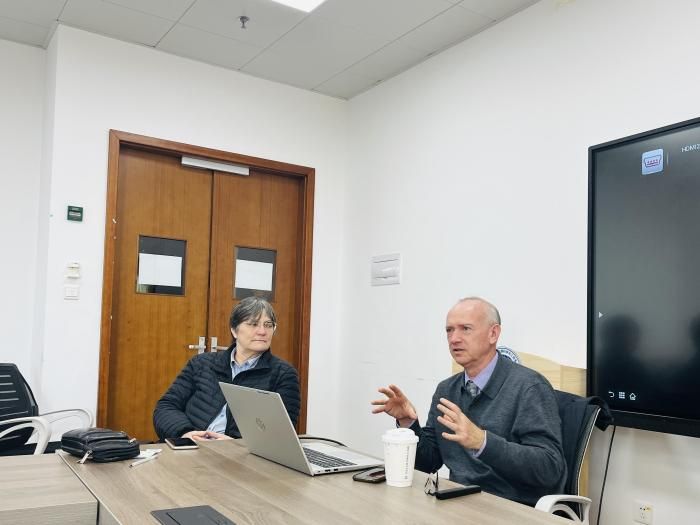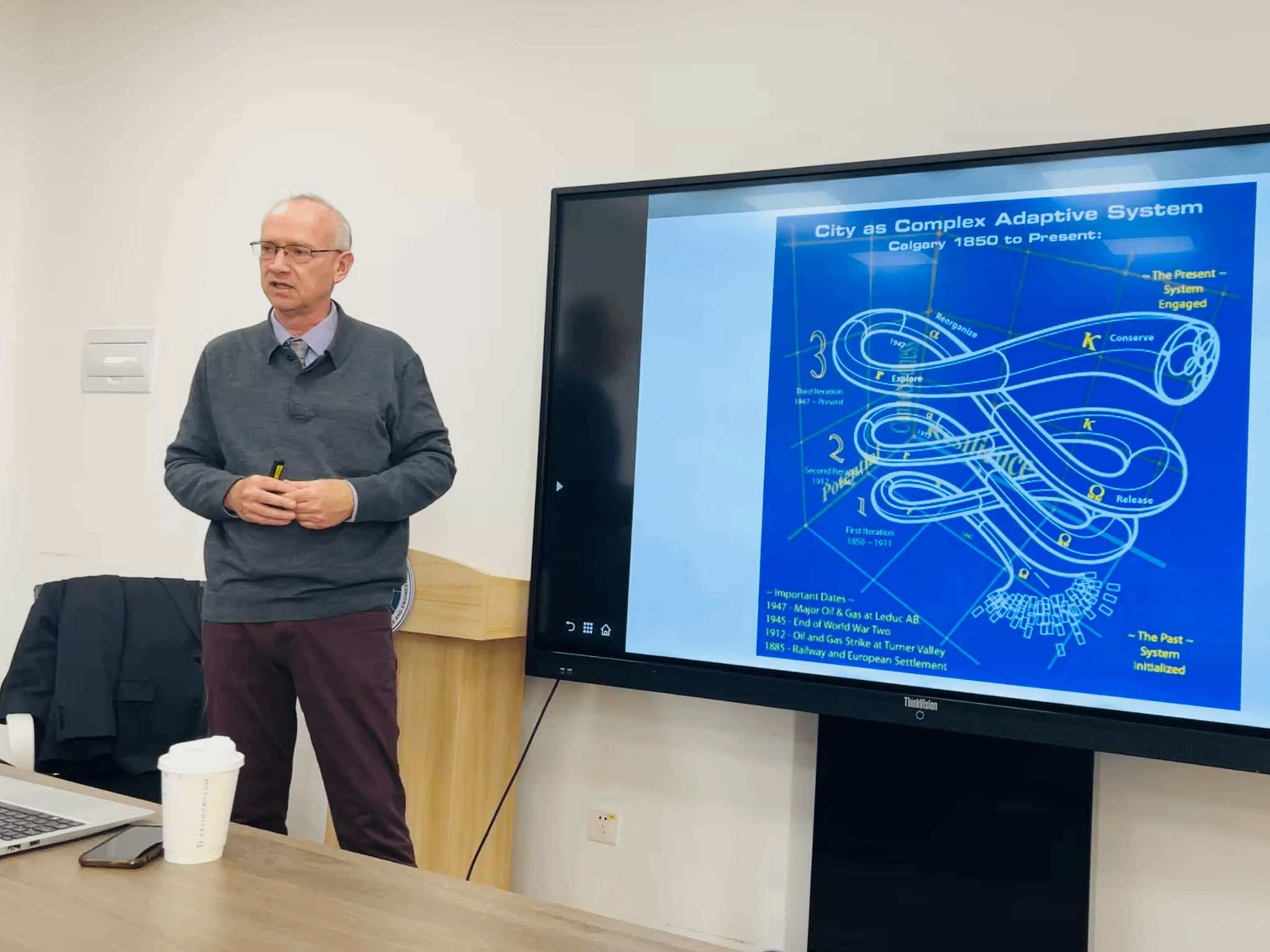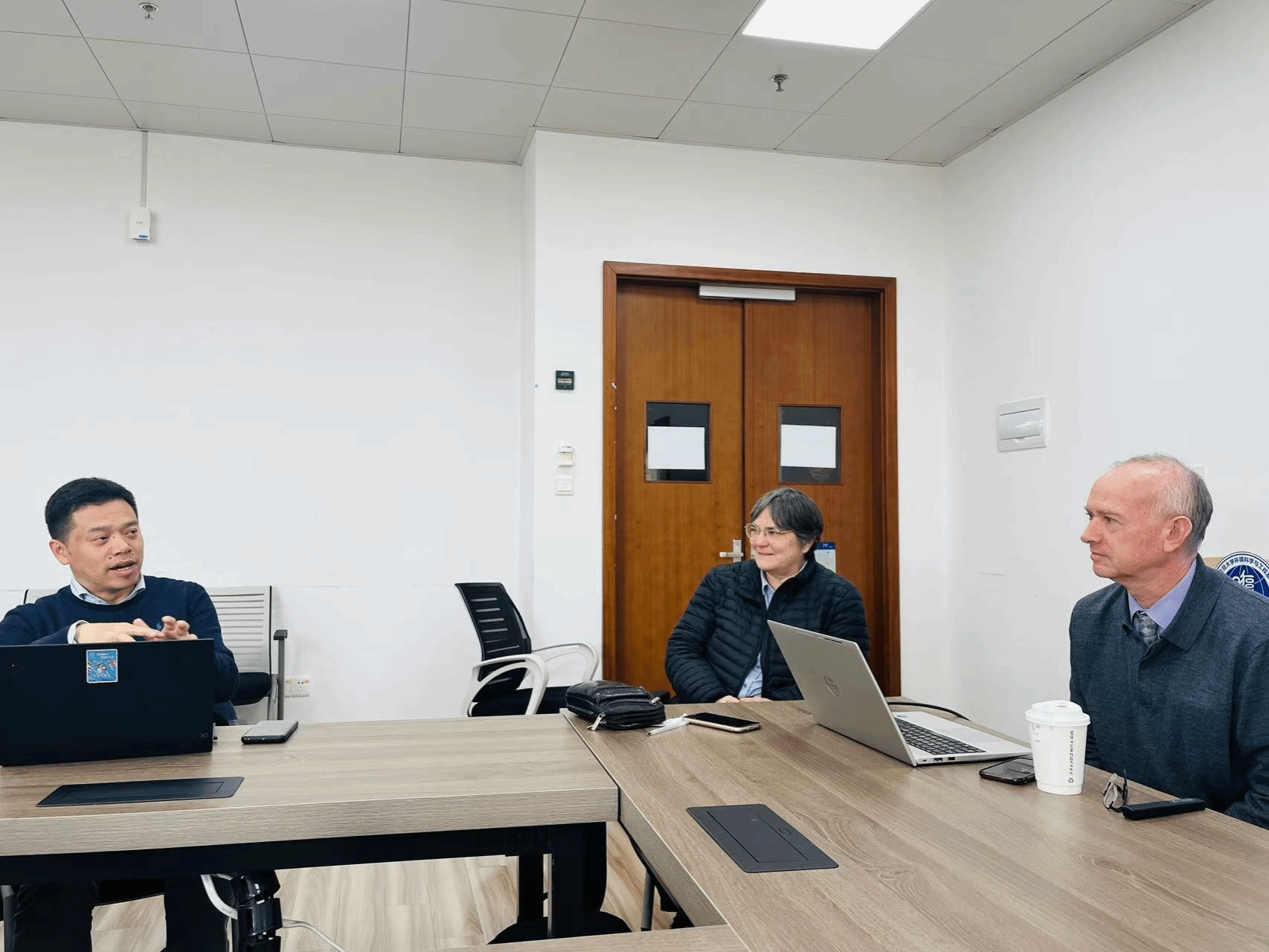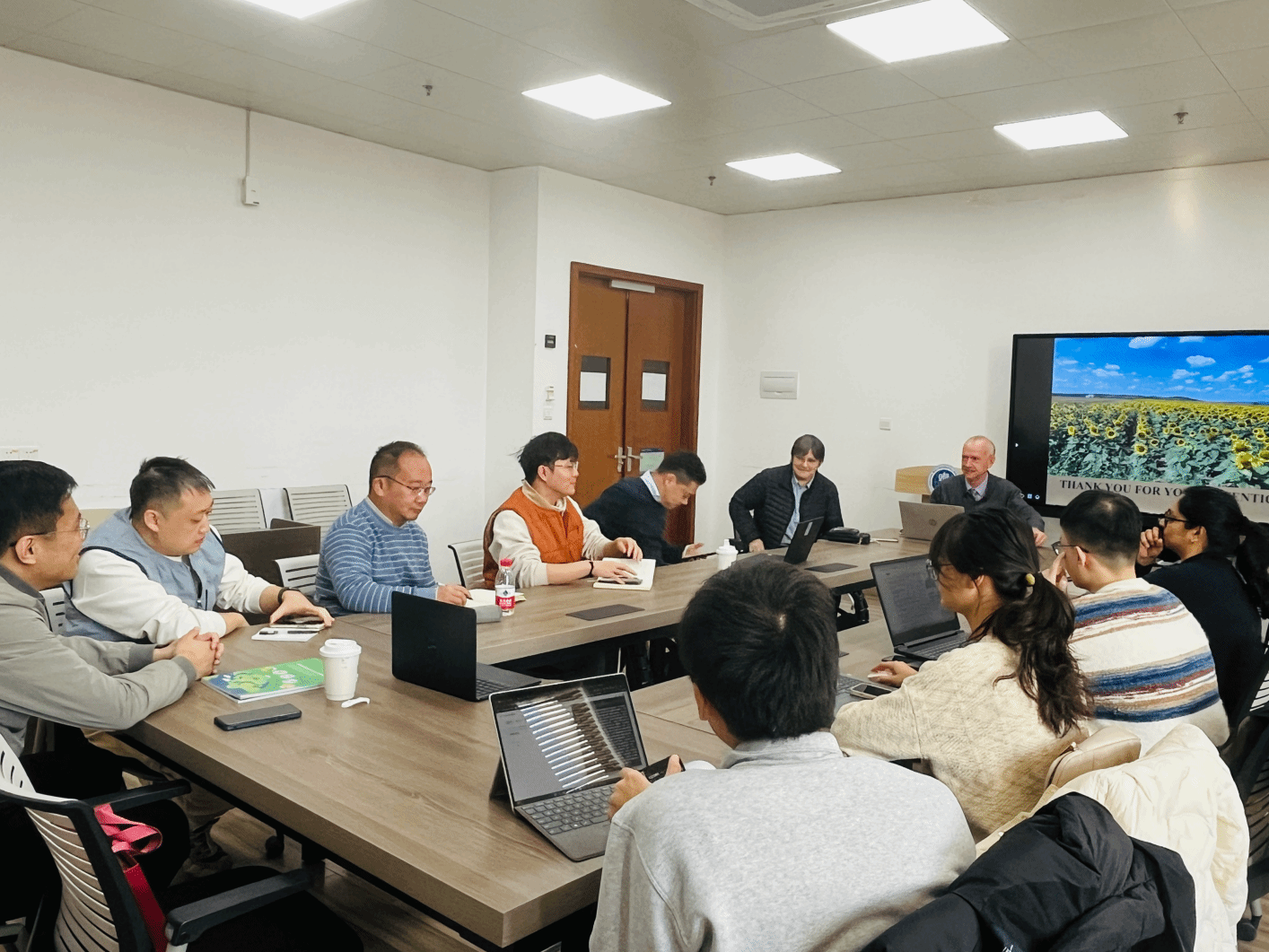On December 14, 2024, Professor Marie Harder from the Department of Environmental Science and Engineering at Fudan University hosted a lecture titled 'Analysis of Urban Systems in Terms of Metabolic Flows and Footprint Impact,' presented by Dr. Brian Fath. This lecture, as the fourth session of the Sustainable Science Frontier series, was funded by the Global Development Strategy Promotion Project of Fudan University’s International Cooperation Office.
The lecture focused on providing a theoretical and methodological foundation for enhancing urban resilience against potential social, economic, and environmental shocks. It aimed to identify the roles, opportunities, and pathways for cities to become more livable while reducing resource consumption. The seminar emphasized the importance of adopting a comprehensive approach to understand and address the complexities of urban systems.
2024年12月14日,复旦大学环境科学与工程系的Marie Harder教授邀请了陶森大学与国际应用系统分析研究所(IIASA)的Brian Fath教授为我校师生开展了一场学术讲座。本次讲座作为环境前沿讲堂可持续科学系列第四讲,受到复旦大学国合处“双一流”全球发展战略推进项目资助。该讲座旨在为提升城市应对潜在社会、经济、环境风险所具备的城市韧性提供理论和方法论基础,识别城市宜居和减少资源消耗的最佳实践路径。该讲座同时也强调了我们在学术研究的过程中应采用整体性的方法论来理解和应对城市系统的复杂性。

Dr. Brian Fath firstly began the lecture by discussing the current challenges faced by urban centers worldwide. He highlighted the need to move beyond conventional urban research methods to grasp the intricacies of urban systems. He presented published case study examples of network and footprint analysis from Vienna, Austria; Malmo, Sweden; and Beijing and Shanghai, China. These case studies illustrated how different cities have approached urban resilience and resource management. Dr. Fath explained the application of novel scenario analysis in policy exercises and beyond, to identify pathways and key opportunities for cities to transform themselves. Specifically, in the case studies of Vienna and Shanghai, he highlighted human-centric approaches to urban resilience and network analysis using the WeValue InSitu approach. This approach emphasizes the integration of human values and local knowledge in urban planning and development. Additionally, he discussed the concepts of circular economy and industrial symbiosis, which involve creating closed-loop systems where waste is minimized, and resources are reused and recycled within the urban environment.
Brian Fath博士首先讨论了当前全球城市面临的严峻挑战,强调需要超越传统的城市研究方法来把握城市系统的复杂性。他展示了来自奥地利维也纳、瑞典马尔默以及中国北京和上海的网络分析和足迹分析案例,这些案例研究展示了不同城市如何实现城市韧性和资源管理。Fath博士表明了在政策实践及其他领域中应用新型情景分析来识别城市转型的重要路径和关键机会。特别是在维也纳和上海的案例研究中,他强调了WeValue InSitu共享价值偏好这一以人为本的研究方法论可以被应用于城市韧性和网络分析之中。WeValue InSitu共享价值偏好方法强调将人类价值观和地方本土知识整合到城市规划和发展中。此外,他还讨论了循环经济和产业共生的概念,通过创建闭环系统,可以减少废物、重复使用城市环境中的可回收资源。

The seminar lecture fostered an interesting and in-depth discussion. During the interactive segment, Dr. Brian Fath engaged in an extensive academic exchange with the faculty and students, addressing various aspects of urban resilience research. Topics such as the ecosystem services approach, which focuses on the interdependence of urban and natural systems, and footprint analysis, which measures the environmental impact of urban activities, were discussed in detail. Participants actively asked questions and discussed upcoming research in the field of urban resilience. The interactive session provided a platform for participants to explore innovative solutions and share insights on how cities can better prepare for and respond to future challenges.
在互动环节中,Brian Fath博士与师生进行了广泛的学术交流,深入讨论了城市韧性研究的各个方面,例如生态系统服务方法——即关注城市和自然系统的相互依存,以及足迹分析——即衡量城市活动的环境影响。现场的师生积极讨论了城市韧性领域的最新研究,该讲座为复旦师生提供了一个探索创新解决方案和分享见解的平台,旨在帮助城市更好地准备和应对未来的挑战。

This lecture contributes significantly to the larger research on urban resilience and sustainability by providing a comprehensive framework for analyzing urban systems through metabolic flows and footprint impact. The case studies from Vienna, Malmo, Beijing, and Shanghai offer practical examples of how cities can implement human-centric and ecosystem-based strategies to enhance resilience. The discussion on circular economy and industrial symbiosis introduces new perspectives on resource management and waste reduction, which are crucial for sustainable urban development. By engaging faculty and students in interactive discussions, the lecture fosters a collaborative environment for exploring and developing new research ideas, ultimately advancing the field of urban resilience and contributing to the broader goals of sustainable development.
本次讲座通过提供分析城市系统的代谢流和足迹影响的全面框架,为城市韧性和可持续性研究做出了重要贡献。维也纳、马尔默、北京和上海的案例研究展示了城市如何通过以人为中心和基于生态系统的策略来增强城市韧性。循环经济和产业共生的讨论引入了资源管理和减废减排的新视角,这对于可持续城市发展至关重要。通过师生热烈的互动讨论,讲座促进了一个探索和开发新思路的开放合作环境,最终推进城市韧性的发展,并为更广泛的可持续发展目标做出贡献。



